More global focus needs to be on Rohingya repatriation: Japanese expert
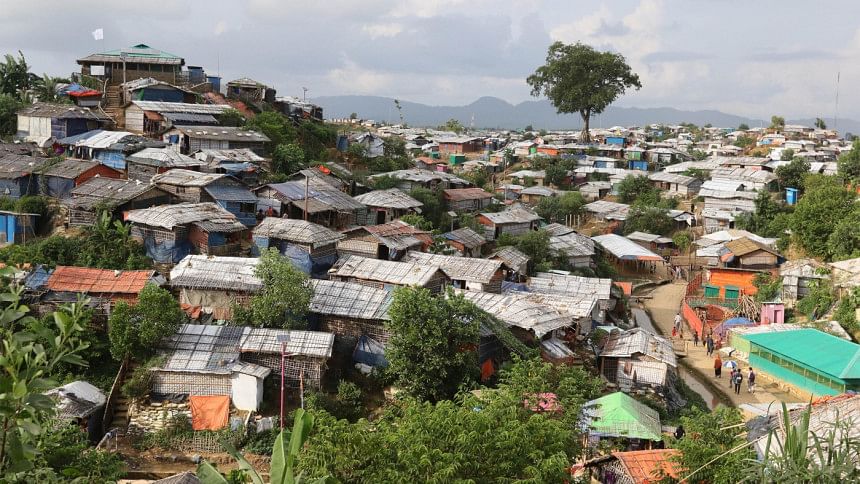
The international community needs to focus more on repatriation of Rohingyas to their place of origin in Rakhine State instead of focusing only on their food, shelter and healthcare issues, says a Japanese South Asian affairs expert.
"We've to work on how to bring them (Rohingyas) back to their original country (Myanma)," Ryohei Kasai, visiting researcher at Center for South Asian Studies, Gifu Women's University, told UNB.
Read more: Bangladesh seeks Japan's support for Rohingya repatriation
The diplomat-turned-researcher said, any refugee crisis has many dimensions but distributing food, providing shelter and healthcare services is one of the approaches to deal with the refugee issue. "[But] that shouldn't be only approach," he said.
Kasai said they know the Japanese government has spoken to Myanmar government, including Aung San Suu Kyi and military officials, to resolve the matter.
Japanese Foreign Minister Tara Kono also spoke to his Myanmar counterpart to convince Naypyidaw so that they take back the Rohingyas, he said.
"We have been asking [Myanmar] to do that. Of course, more should be done," Kasai said, adding that the international community should help Bangladesh to ease the burden on it due to the Rohingya crisis.
Japan has already shared some "preliminary ideas" with Bangladesh that can help expedite the Rohingya repatriation process as the country, being a common friend of Bangladesh and Myanmar, does not want to see "prolongation" of the Rohingya situation.
Japanese Foreign Minister Kono floated the ideas during a bilateral meeting with his Bangladesh counterpart AK Abdul Momen held in Dhaka recently.
Kono clearly mentioned that they do not want prolongation of this situation but hoped that the repatriation process will be expedited. The Japanese minister, who visited Bangladesh thrice and Rohingya camps twice, also visited Myanmar to discuss the issue with its leadership.
Asked about any tripartite meeting among Bangladesh, Japan and Myanmar to find a solution, a diplomat here told UNB that there is no concrete plan and no particular date is fixed to have such a meeting.
A Japanese government source said, they are with Bangladesh to assist and realise repatriation of the forcibly displaced people as early as possible. "We will continue to support Bangladesh to realise early repatriation of Rohingyas," the source said.
Japanese expert Kasai praised Bangladesh for hosting such a big number of people from Myanmar which is a big burden for Bangladesh. "I am very concerned about the refugee issue," he said.
Bangladesh is now hosting over 1.1 million Rohingyas. More than 730,000 of them fled to Bangladesh to escape a vicious campaign of ethnic cleansing since August 25, 2017.
Japanese Prime Minister Shinzo Abe showed his deep respect for the government of Bangladesh for generously accepting and protecting the Rohingyas on humanitarian ground. The two countries share the importance of stability in Cox's Bazar from the perspective of enhancing connectivity and securing regional stability.
On May 29, Prime Minister Abe held a 50-minute meeting with his Bangladesh counterpart Sheikh Hasina in Japan, and discussed ways to find a "durable and early solution" to the Rohingya crisis.
But attempts to send back the Rohingyas failed twice.
Despite all preparations, no Rohingya turned up on August 22 to accept the "voluntary" repatriation offer, prompting authorities to suspend the process for the day.
The first batch of Rohingyas was scheduled to return on November 15 last year but it was also halted amid the unwillingness of Rohingyas to go back for the lack of a congenial atmosphere in the Rakhine State.
The two countries signed a repatriation deal on November 23, 2017, but there has been little progress.
On July 29, Bangladesh handed a fresh list of 25,000 Rohingyas from around 6,000 families to Myanmar for verification before their repatriation.
With the latest list, Bangladesh has so far handed the names of around 55,000 Rohingyas to the Myanmar and around 8,000 of them have been verified. Myanmar only cleared 3,450 Rohingyas for beginning the repatriation.
On January 16 last year, Bangladesh and Myanmar inked a document on "Physical Arrangement", which was supposed to facilitate the repatriation. It stipulates that the repatriation will be completed preferably within two years from the start.

 For all latest news, follow The Daily Star's Google News channel.
For all latest news, follow The Daily Star's Google News channel. 

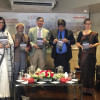
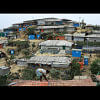

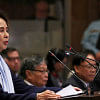
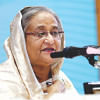


Comments